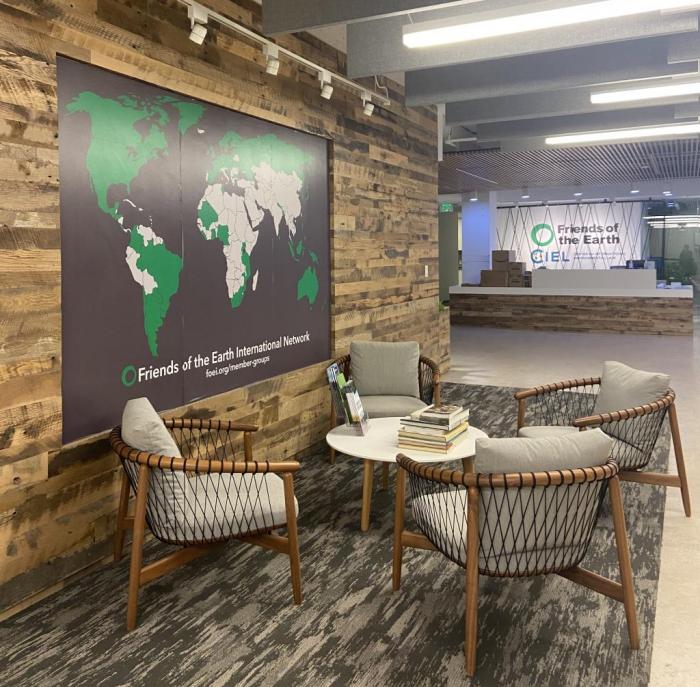Secondary menu
A Summer at the Center for International Environmental Law
Cross-border collaboration in a hybrid work environment

CIEL office in Washington, D.C. Credit: Jane Fallis Cooper.
This summer, I had the privilege of working at the Center for International Environmental Law (CIEL), a public interest, not-for-profit environmental law organization. It was founded in 1989 in the United States to strengthen international and comparative environmental law and is well-regarded as an international environmental law advocacy organization. CIEL has two offices, one in Washington, D.C. and one in Geneva, Switzerland, as well as an expanding roster of virtual employees. I worked as a legal intern with the D.C. office—mostly virtually, but with an in-person trip to meet my co-workers and supervisors.
I have admired CIEL’s work for years and have cited many of their reports and legal materials in environmental courses and writing projects. Getting a chance to meet and work with the individuals responsible for these wonderful materials was incredible!
As a D.C. legal intern, I worked on various projects spanning CIEL’s four legal focus areas: Promoting Environmental Democracy, Counter-balancing Corporate Power, Ensuring Finance Serves People and the Planet, and Strengthening International Environmental and Human Rights Law. My work dealt with pension divestment, securities regulations, human rights legislation, and a project in collaboration with the Canadian organization Ecojustice. I also assisted in brainstorming novel legal arguments and helped draft a factum for an upcoming appeal case in which CIEL is intervening. Finally, I worked on a communications project alongside the other D.C.-based legal interns. Our goal was to expand the reach of some of CIEL’s legal tools and resources, including “Pushing Back: A Guide for Frontline Communities Challenging Petrochemical Expansion,” and build partnerships with other legal organizations doing similar work. I enjoyed participating in weekly staff meetings, equity-focused sessions, and board meetings as they came up. These experiences helped me feel very well-integrated into CIEL’s staff, something that can be particularly challenging as an intern, especially with largely remote positions.
While in D.C., I stayed at Howard University with many other summer interns and students. This gave me both the chance to explore the city and to participate in day-to-day office life at CIEL, from staff lunches to in-person meetings. Outside of CIEL, I was able to visit multiple Smithsonian museums, national monuments, and different D.C. neighbourhoods.
I had a wonderful summer and have taken away many important lessons and new legal skills (for instance, this was my first time using Bluebook). I encourage all 1Ls and 2Ls to consider an International Human Rights Program fellowship for this upcoming summer!
